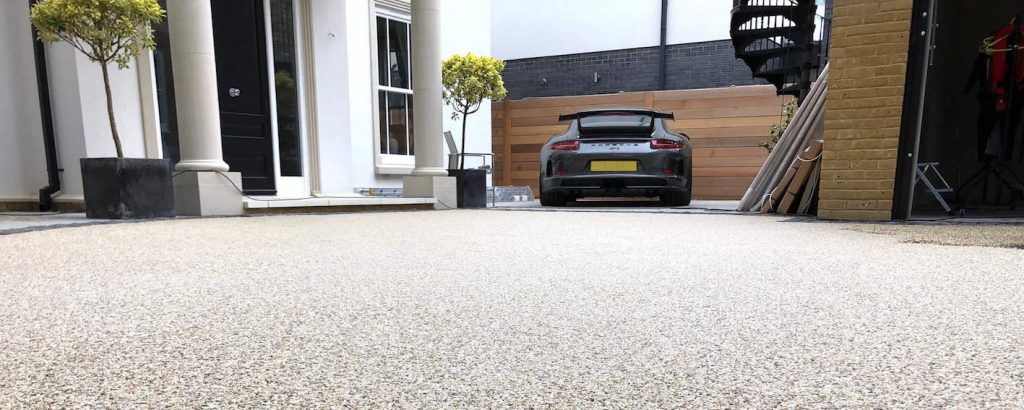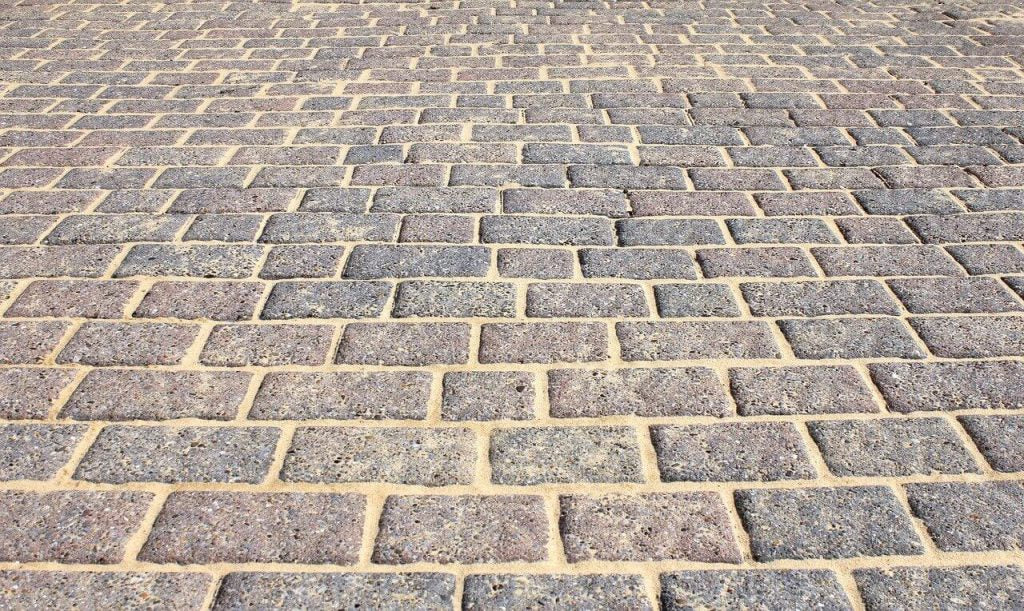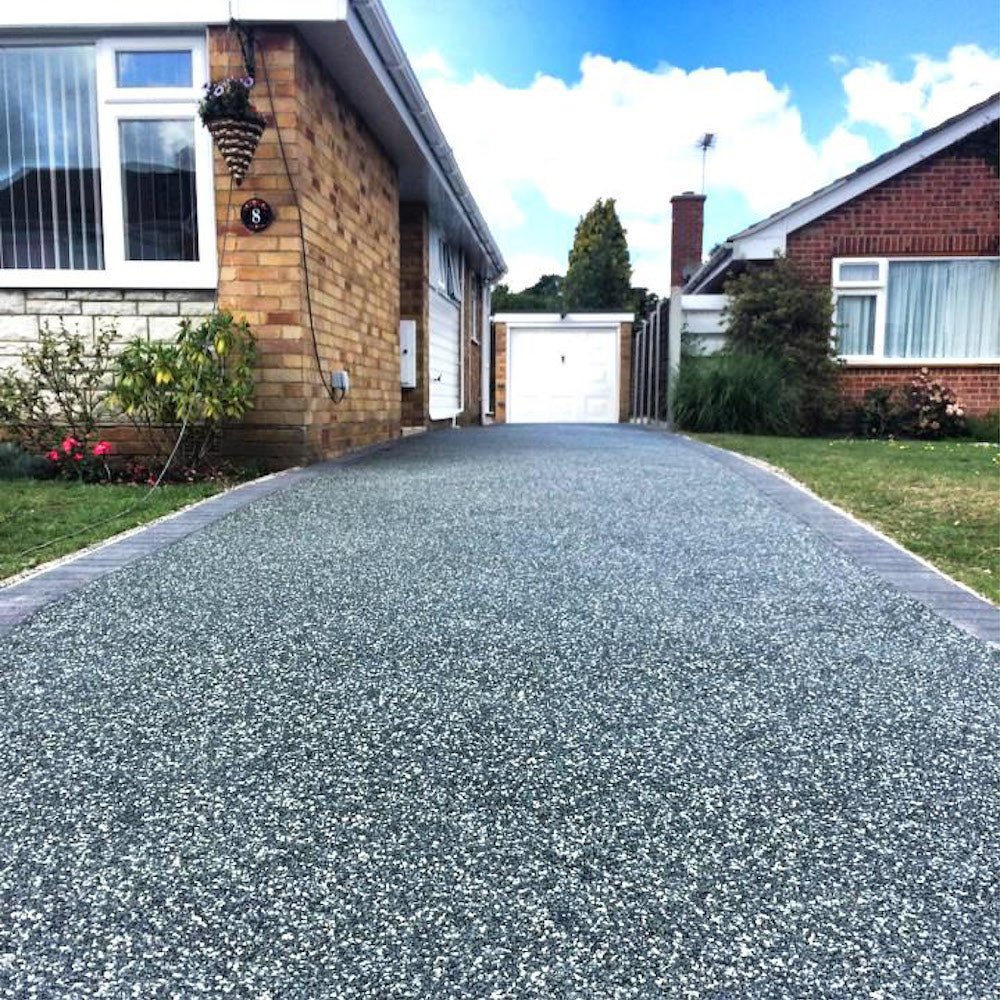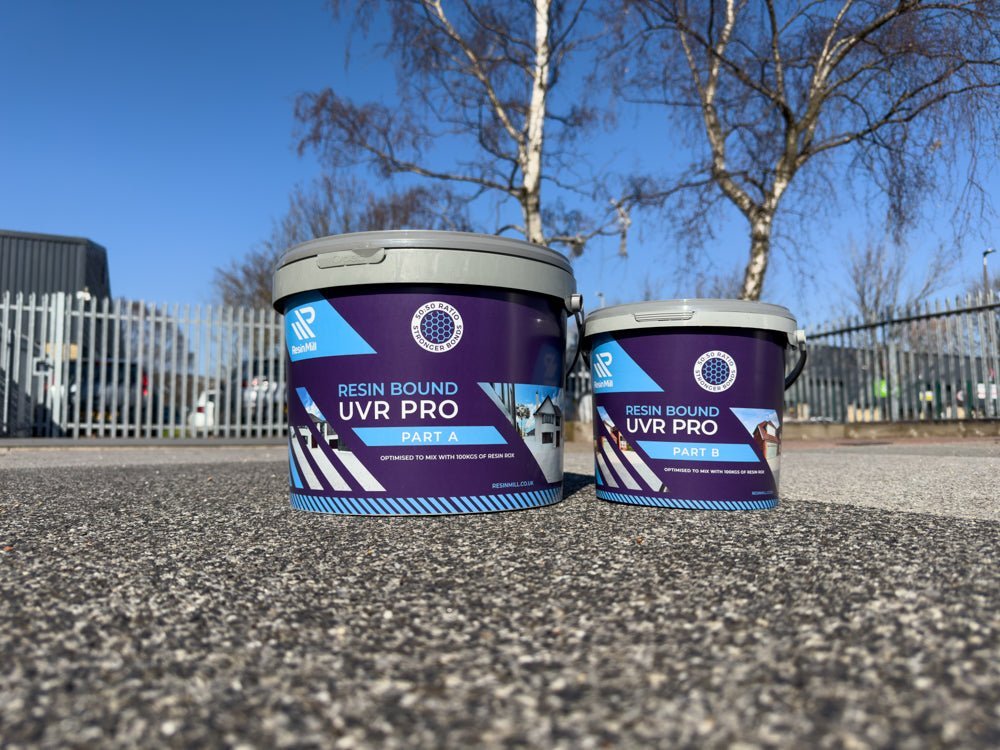In the UK, it is not a legal requirement for front gardens that are converted to driveways to be permeable. However, permeable driveways can be built to any size without requiring planning permission. For this reason, they are especially popular with householders who want additional parking.
One type of permeable driveway that has become especially popular in recent years is resin bound driveways. Created by coating a wide range of aggregates in a polyurethane resin, they are quick to install, highly durable, and a huge range of attractive looks can be created. Here at The Resin Mill, we supply a range of high-quality resins and aggregates that are suitable for creating SuDS compliant driveways.
When did regulations on permeable driveways change?
The regulations on permeable driveways in England were introduced at the beginning of October 2008. They were introduced for 3 reasons:
- To combat flooding, which was becoming more prevalent because of homeowners removing their front gardens and replacing them with flat, hard surfaces.
- Because these hard surfaces release heat stored during the day into the environment at night, leading to the environment becoming warmer.
- The negative consequences of paving over grass for wildlife and biodiversity.
Are there any exceptions relating to porous driveways?
 Yes, there are. The guidance regarding permeable driveways outlined above only applies when wanting to convert the front garden on a house. There are different rules for driveways that are not part of a front garden, available on the Planning Portal.
Yes, there are. The guidance regarding permeable driveways outlined above only applies when wanting to convert the front garden on a house. There are different rules for driveways that are not part of a front garden, available on the Planning Portal.
The guidance also does not apply to:
- Flats & maisonettes
- Converted houses and houses that are built via a change of use
- Other buildings
- In areas where an Article 4 direction, planning condition, or alternative limitation on permitted development rights, might apply
If there are plans to drop the kerb to provide access to the driveway, permission from the local council will also need to be sought.
Do non-permeable driveways need planning permission?
This will depend on its size; non-porous driveways that are more than 5m2 will require prior planning approval before they can be legally built.
Is block paving classed as permeable?
 Not necessarily. Block paving is available in both permeable and non-permeable varieties. The difference, however, is that the edges of permeable block paving are designed to create larger gaps between blocks. These gaps are then filled with grit instead of kiln-dried sand, which allows water to soak into the ground below.
Not necessarily. Block paving is available in both permeable and non-permeable varieties. The difference, however, is that the edges of permeable block paving are designed to create larger gaps between blocks. These gaps are then filled with grit instead of kiln-dried sand, which allows water to soak into the ground below.
What is a porous driveway?
A porous, or permeable, driveway allows for water to naturally pass through its surface so it can be safely drained away through the sub-base There are several different types of them, which we have covered in more detail here.
The Resin Mill, specialist suppliers of aggregates and resins, perfect for the creation of resin bound and resin bonded driveways
The Resin Mill is a specialist supplier of resin-bound supplies and resin bonded surfacing materials, which can be used to create high-quality permeable and non-permeable driveways. We also offer a next day delivery service along with expert, hands-on advice.
For more information or a free quote, give us a call on 01484 400 855 or send an email to sales@theresinmill.co.uk.








Leave a comment
This site is protected by hCaptcha and the hCaptcha Privacy Policy and Terms of Service apply.